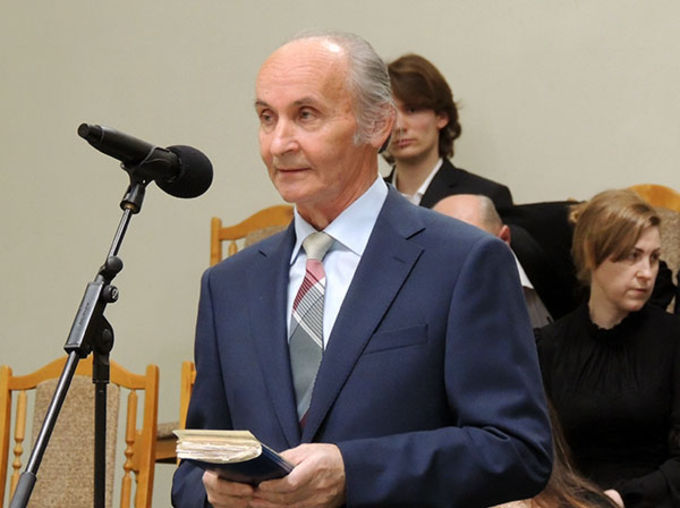
The Uniqueness of Russian Baptists
Solzhenitsyn's words hint at the distinctive face of Russian Baptists. What special features are most inherent in them?
Russian Baptists are a part of fruitful reformation movements that have emerged from century to century on Russian soil since the 12th century. Baptists are largely implicated in Dukhoborism, Molokanism, and Russian Orthodoxy. Naturally, foreign preachers initially helped their Russian brothers in organizing the external structure of communities, in establishing missionary and social services. However, the very core of the movement, its soil and foundation is the fruit of Russian spiritual creativity and the result of diligent study of Scripture. One of the founders of the Baptist movement, Vasily Ivanov-Klyshnikov, in a disagreement with Bishop Alexei Dorodnitsyn, said that "Russian Baptism is even more national than Byzantine Orthodoxy."
According to the philosopher Peter Chaadaev, Russia must become a bridge between East and West, must absorb all the experience of universal Christianity, link the dynamism of the West and the prayerful depth of the East into one whole. This mission was partly taken on by Russian Baptists, creating a multidimensional fusion of Eastern and Western spirituality, an organic combination of the Christianity of Martha and Mary. Domestic evangelical communities were distinguished by their depth of prayer life and diligent practical ministry.
Historically, the way of the suffering was the lot of most Russian Baptists. In Tsarist Russia they were considered revolutionaries, and in Soviet Russia they were labeled as counter-revolutionaries. In the late 1800’s and early 1900’s, the Baptists experienced the inquisitorial rod of Chief Prosecutor Pobedonostsev, whose main goal was "to break the backbone of Russian Baptists." He devised laws aimed at brutally suppressing religious dissent. On his initiative, St. Petersburg aristocratic preachers, Pashkov and Count Korf, were expelled from Russia, and ordinary believers, shackled, marched along the roads of Transcaucasia, Siberia, the Northern Territory, risking death from hunger and unbearable living conditions.
Stalin's horrific Reign of Terror destroyed thousands of God’s sons and daughters, and faithful to the Fatherland in the insatiable prison of the GULAG. The notorious Butovo training ground in Moscow is the site of mass executions, where Baptist ministers and ordinary believers literally lost their heads. The persecution of the Baptists was continued by other rulers of the Soviets. Then dictator Nikita Khrushchev threw down the slogan about the imminent advent of communism in the USSR, and before its full arrival, faith in God must be completely eliminated. Then Yuri Andropov involved all law enforcement agencies to pressure and fabricate court cases against active Christians from all confessions. The persecution did not stop until perestroika. The last sufferer for the faith, Odessa pastor Nikolai Boyko, only recently left the Soviet torture chambers in 1989.
The experience of suffering for the faith allowed Russian Baptists to form the theology of martyrdom and confession. This experience became an essential part of the historical and artistic chronicles created by Nikolai Khrapov, Yuri Grachev and many other authors from among the Baptists.
In liturgical practice, Russian Baptists have also retained their identity. The tradition of fraternal ministry involving several preachers, which dates back to the 14th century, took root in Baptist services and continues to this day, which has proven valuable.
The theology and doctrine of the Russian Baptists escaped an unhealthy deviation from the debate over Calvinism and Arminianism. Keeping open to differing views, Russian Baptists have mostly found a balanced approach to these systems of theology.
Russian Baptists have a unique historical lineage, in which, figuratively speaking, aristocratic and common blood flows in their veins. If one lineage originated in the luxurious mansions and estates of the highest Russian courtiers, then the other arose mainly in peasant huts. There, the bearers of the Gospel, according to Ivan Prokhanov, were simple peasants in earrings and rugged shoes.
Despite the huge difference in the social status of church members, Russian Baptists were able to overcome class barriers. At general spiritual congresses and conferences nobility, counts and princes freely communicated with their fellow believers of simple origin and faith. In matters of spiritual enlightenment in Russia, aristocrats and commoners fruitfully collaborated.
Thus, even an extremely brief, cursory glance at the characteristic features of the Russian Baptist movement allows us to conclude that the Russian Baptist movement is a unique phenomenon in the world history of Christianity.
Vladimir Popov


